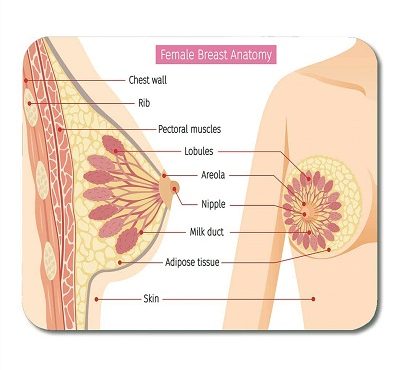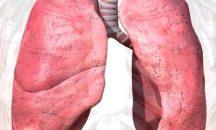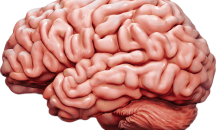“All breasts matter; offer support”

Breast cancer is on the rise worldwide and that includes Ghana. The way to curb or cure this disease does not lie in a prayer camp or at the feet of a herbalist. Like charity breast screening begins at home and we all need to master the basics so that we can detect changes quickly and report to health professionals. “Early detection and effective treatment is the only cure for breast cancer.”
This weekend our focus is to critically look at factors that put one at increased risk of breast cancer. No one can pinpoint the exact cause but there are red flags.
ALL BREASTS MATTER; offer support. The size of your breast does not protect you from breast cancer. Not even your gender offers absolute protection and in 2021 it is projected that there will be over 2000 men who will be diagnosed with breast cancer for the first time. Let us not deceive ourselves and assume that we are insulated from this cancer; you can be the first person in your family with breast cancer.
An ideal time to do monthly self-examination is a week after one’s menses. For those who have reached menopause or no longer menstruate for other reasons, pick a time of the month and stick to it.
Risk factors of breast cancer
“However, having a cancer risk factor, or even several of them, does not necessarily mean that a person will get cancer. Some women with one or more breast cancer risk factors never develop breast cancer, while about half of women with breast cancer have no apparent risk factors.” – Sabrina Felson, MD
- Age – the older you are the greater the risk
- Gender – being a woman automatically puts you at more risk.
- For women having a male blood relative with breast cancer balloons your risk
- Family History (the gene factor is here) – our risk increases when a close family member has the cancer
- Personal History – when we have cancer in one breast the chance of it occurring in the other or even the same breast is increased
- Genetics
- Five per cent to 10 per cent of people with breast cancer thought to be hereditary.
- Alterations in breast cancer genes BRCA1 and BRCA 2 increase one’s risk of breast cancer markedly.
- Menstruation – Having first menses at an early age and reaching menopause late
- Race – white women have an increased risk but blacks have more aggressive varieties
- Alcohol use and fatty or cholesterol-laden foods increase the risk
- Having no children or the first child after 35yrs increases risk (not a reason to encourage teen-age pregnancies)
- Having dense breasts. Your breasts have more fibrous than fatty tissue.
- Breast Lesions
- A previous breast biopsy lesion of atypical hyperplasia may increase one’s risk of breast cancer
- Complex fibroadenosis may also increase risk just as any other abnormal breast lesion will
- Excessive exposure to chest radiation
- This is especially true of women who were exposed to a large amount of radiation before age 30 — usually as treatment for cancers such as lymphoma.
- Being overweight or obese increases risk especially fat in the midsection
- Certain hormone therapies may increase risk
- Other cancer in the family.If a family member had ovarian cancer under age 50, your risk is increased
Myths?
These may not be linked to increased breast cancer risk BUT research is still ongoing for some such as the use of breast implants.
- Fibrocystic breast changes
- Multiple pregnancies
- Coffee or caffeine intake
- Use of antiperspirants
- Wearing underwire bras
- Using hair dye
- Having an abortion or miscarriage
- Using breast implants
Finally dear reader let’s put the following in action
- Early detection is great so women should do monthly self exam and probably examination by a healthcare professional yearly. Men should make sure we examine our breasts occasionally because, though the risk of breast cancer is extremely low, it may still occur. Don’t be a statistic!
- Mammograms, Ultrasounds, MRIs etc. should be taken advantage of.
- Exercise regularly
- Eat a healthy meal with a great portion of fruits, vegetables and omega -3 laden fish. But beware of fats and oil.
- If you intend to start a family, maybe you should before you are 30years and then breastfeed for as long as you can afford to.
- DEFINITELY make sure you alert at least one busy woman, one woman without access to information and one man, that breast cancer is real but a lot can be done when detected early.
Together we can all work to reduce the incidence of advanced breast cancer.
AS ALWAYS LAUGH OFTEN, ENSURE HYGIENE, WALK AND PRAY EVERYDAY AND REMEMBER IT’S A PRICELESS GIFT TO KNOW YOUR NUMBERS (blood sugar, blood pressure, blood cholesterol, BMI)
Dr. Kojo Cobba Essel
Health Essentials Ltd/ St Andrews Clinic/Mobissel
(dressel@healthessentialsgh.com)
*Dr Essel is a medical doctor, holds an MBA and is ISSA certified in exercise therapy, fitness nutrition and corrective exercise.
Thought for the week – “Early detection and effective treatment are the only cure for breast cancer.” – Dr. Florence Dedey.
References:
- Breast Cancer Course for Health Professionals
- www.webmd.com ; “Risk factors for breast cancer” – reviewed by Sabrina Felson, MD
- www.mayoclinic.com
- www.medicinenet.com/breast_cancer
- Citifmonline
- Mosby’s Ace the Boards
- Breast Cancer in Ghana is Rising. Here’s how to prevent, detect and treat it. – Dr. Florence Dedey.
By Dr. Kojo Cobba Essel













